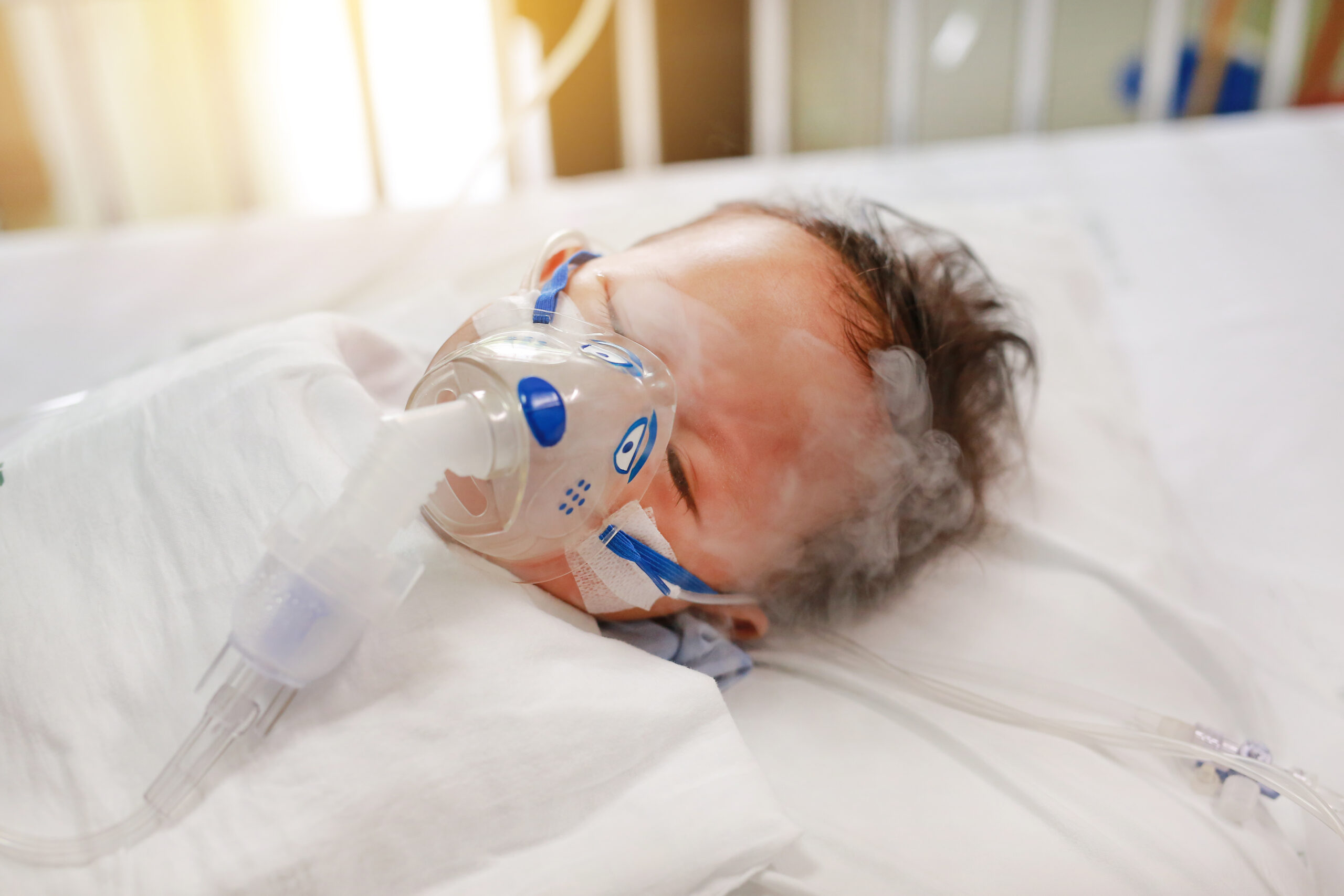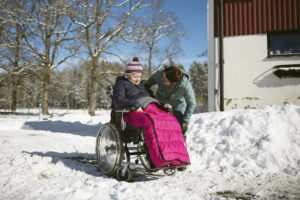If you’ve watched the news lately, you’ve probably heard that RSV infections are spreading quickly among children across the United States. Many children have been hospitalized, and pharmacies have placed restrictions on children’s pain relief medications.
According to the Centers for Disease Control and Prevention, about 58,000 to 80,000 children under the age of 5 are hospitalized for an RSV infection in an average year. However, there have been more than 180,000 cases this RSV season. Children with complex medical conditions have a greater risk of RSV infection and complications.
What is RSV?
Respiratory syncytial virus, or RSV, is an infectious disease that causes infection in the lungs and respiratory tract and can be dangerous in young children. RSV is most common in children under two years old but can also affect adults and older children. The virus is very contagious and spreads through sneezes, coughs and contact with contaminated materials. It can live for several hours on hard surfaces and for a shorter time on soft surfaces like blankets and stuffed animals.
Symptoms
In infants, RSV symptoms include shallow and rapid breathing, struggling to breathe, coughing, poor feeding, lethargy and irritability. In adults and older children, RSV can present with: congested or runny nose, dry cough, low-grade fever, sore throat, sneezing and headache.
High-risk patients
For otherwise healthy children, RSV can look like a common cold; however, for medically fragile children, it can be much more serious. Dr. Sameer Kamath, Chief Medical Officer for Duke Children’s Hospital and Health Center, told NBC News, “The ones who tend to get the most sick are the infants below four months. And then the ones who are older who tend to get most sick are those who have some other medical conditions.”
The children who are most vulnerable to severe RSV infections are:
- Infants, especially those under six months or born prematurely
- Children with congenital heart disease or chronic lung disease
- Children with weakened immune systems from conditions or treatments such as chemotherapy
- Children with neuromuscular disorders, such as muscular dystrophy
Complications
Severe RSV infections or RSV infections in medically fragile children can lead to a variety of complications.
Hospitalization
Severe RSV requires hospitalization so doctors can monitor breathing problems and provide IV fluids. In very fragile children, RSV infections can move rapidly, and conditions can change quickly. Being hospitalized allows doctors to intervene promptly.
Inflammation
In infants, RSV is the most common cause of pneumonia (inflammation of the lungs) and bronchiolitis (inflammation of the airways). Pneumonia and bronchiolitis can be very dangerous in medically fragile children, as well as older and immunocompromised individuals.
Ear infections
A middle ear infection can occur if germs enter the space behind the ear drum. Ear infections can lead to pain, trouble hearing, headache, loss of appetite and irritability.
Asthma
The Mayo Clinic reports that there may be a link between severe RSV infections and developing asthma later in life.
Repeated infection
Contracting RSV raises the risk of getting it again in the future. It is possible to get RSV again during the same season; however, the symptoms are generally less severe.
If your child is at high risk of RSV, seek immediate medical attention if they have trouble breathing, a high fever or blue color to the skin.
Preventing RSV in high-risk children
If your child has complex medical needs, you may need to take extra steps to prevent your child from getting infected. The CDC recommends the following:
- Wash your hands often and for at least 20 seconds.
- Avoid touching your eyes, nose and mouth with unwashed hands.
- Avoid close contact with people with cold-like symptoms.
- Cover your mouth and nose while coughing or sneezing.
- Clean and disinfect surfaces people frequently touch, such as toys, doorknobs and mobile devices.
- If possible, avoid workplaces, schools and public areas when you are sick.
Maxim’s pediatric care services
When your medically fragile child’s health is compromised, Maxim is here to help! Our team of nurses and home health aides work with families and physicians to implement care plans focused on clinical excellence and customer service. Licensed Practical Nurses, Licensed Vocational Nurses, and Registered Nurses provide private duty care and treatments for chronic and acute illnesses and disabilities. We also offer intermittent skilled nursing, therapy and school nursing to eligible patients.
Pediatric home healthcare services are available in most Maxim locations across the country. Reach out to your local office for more information.



